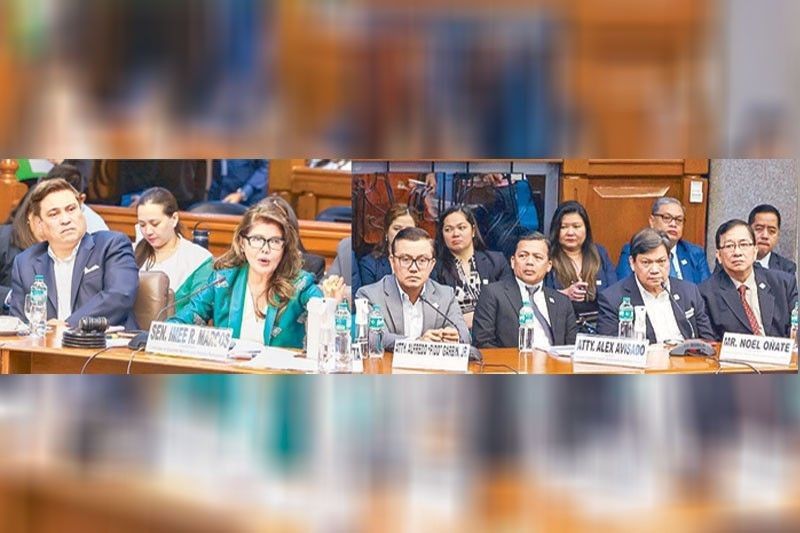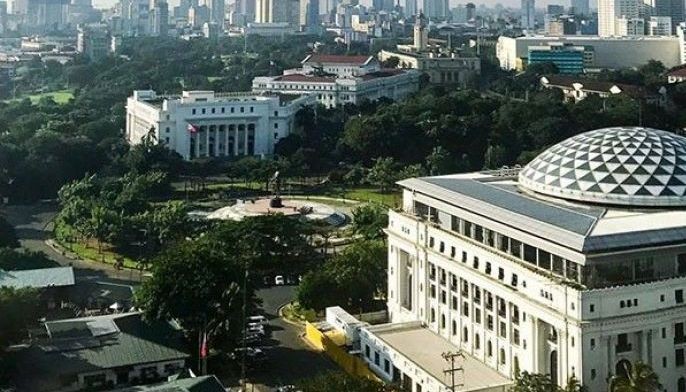Signature drive for people’s initiative to continue – PIRMA

MANILA, Philippines — The signature drive for a people’s initiative will continue despite the ongoing investigation being conducted by the Senate, according to the lead convenor of the People’s Initiative for Reform, Modernization and Action.
PIRMA’s Noel Oñate said in a radio interview that the Commission on Elections (Comelec) only suspended accepting the gathered signatures.
“Nobody can stop the people’s initiative as this is part of the rights of every citizen. This cannot be stopped by the Comelec, by the Supreme Court, by the Senate or Congress as it is a fundamental right of the people if they want to continue the signature campaign,” Oñate said.
He added that the signatures already submitted to the Comelec would remain with the poll body for safekeeping, despite a call by Comelec Chairman George Garcia for the sheets to be retrieved.
Oñate claimed PIRMA reached the required 12 percent of the total population under the people’s initiative, although “some (congressional) districts have yet to submit the required signatures.”
He also denied reports that some of those who signed already withdrew their signatures.
At the same time, Oñate said that the Senate cannot compel him to disclose the donors of the signature drive, saying that the privacy of these individuals is protected under the Data Privacy Act.
“Many of those who donated want their identities to be anonymous. All the candidates, including senators, receive donations and these donors do not want to mention their names. That’s natural,” he added.
Trash the signatures
Sen. Imee Marcos urged the Comelec to trash signatures collected by PIRMA, which she described as an illegal entity.
During the Kapihan sa Maynila forum, Marcos said she is willing to author and even sponsor Comelec’s request to legislate a law to clean up the voters’ registry.
Marcos noted that she has proof of a very organized gathering of signatures for the people’s initiative.
“There were pieces of evidence, coupon distributed, very organized. Others were given food packs,” Marcos said.
She said Comelec Chairman George Garcia already stopped the verification of submitted signatures.
“But the question remains that millions of signatures, with the Comelec, already received it. That’s the question. Will it be destroyed? He (Garcia) said no, it’s just there. They can still use the signatures for the next PIs, those signatures have no expiration dates,” she added.
Marcos pointed out that the elections in 2025 and 2028 are still far away and those behind the present PI can still revive the effort for Charter change.
“For me, can’t it be returned to the people? Burn it or something. Throw that away instead of being idle there.”
“Comelec says it is not dead yet and the signatures are still available and can be used later,” she said.
Marcos said her Senate committee on electoral reforms and people’s participation will still continue the investigation on the alleged bribery and deception, and to also establish the proper way to conduct a people’s initiative.
“The PI hearing will be about how to conduct PI correctly, its process and procedure,” she noted.
Philippines lags in FDIs
The Philippines had registered an increase in foreign direct investments (FDIs) in 2021 but it is still lagging behind Vietnam and Indonesia, a report of the House of Representatives’ think tank Congressional Policy and Budget Research Department (CPBRD) said.
At a forum on the impact of regulatory barriers on inward FDI in ASEAN 5, CPBRD supervising legislative staff officer Rutcher Lacaza said countries are competing for FDI because of the various economic benefits that they bring.
Lacaza reported that FDI inflows have “significantly improved” in the Philippines, reaching $10.5 billion in 2021, citing the Bangko Sentral ng Pilipinas. This is 54 percent higher than in 2020.
“But despite growing FDI inflows, the Philippines continues to lag behind its neighbors in ASEAN region,” he said.
He cited a World Bank report that FDI in the Philippines had increased by an average of 3.9 percent prior to the COVID-19 pandemic. This is less than the 7.6 percent and 9.4 increases in Vietnam and Indonesia, respectively.
According to Lacaza, FDI plays a crucial role in a country’s economic development as it facilitates local employment, contributes to capital accumulation and promotes “technological catch-up,” among others.
Lacaza, however, noted there are various “determinants” for the entry of FDI in a country. He cited market size, political and economic stability, geography, peace and order situation, infrastructure, human capital, cost of labor and other inputs and trade openness.
The report showed that “regulatory restrictiveness” is one of the factors that determine the entry of foreign investors as they look at the “foreign equity limitations” in a country. This pertains to the level of ownership for foreign investors in domestic companies.
Despite the liberalization trends, the Philippines remains the “most restrictive” in ASEAN 5, which also includes Vietnam, Indonesia, Thailand and Malaysia.
“The Majority of FDI restrictions are in the form of equity restrictions, with the Philippines being the most restrictive,” the report stated. – Sheila Crisostomo, Cecille Suerte Felipe
- Latest
- Trending




























